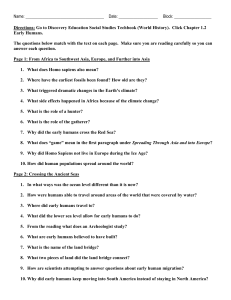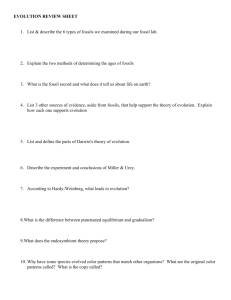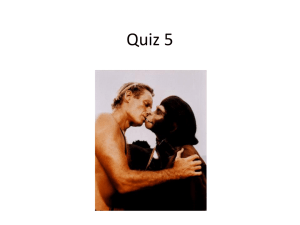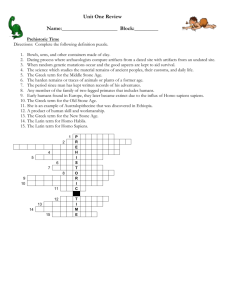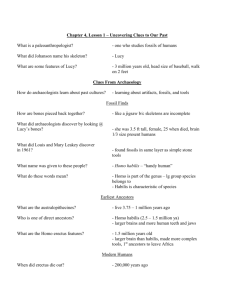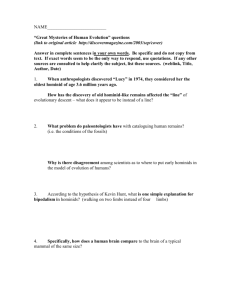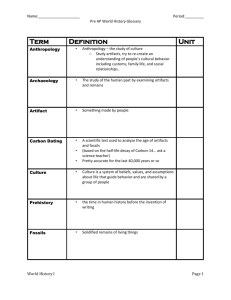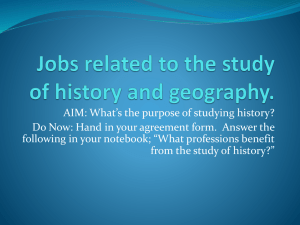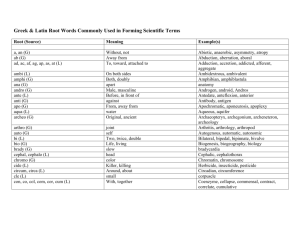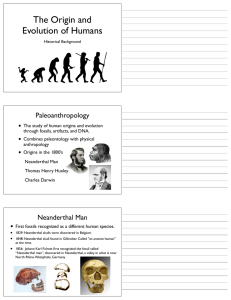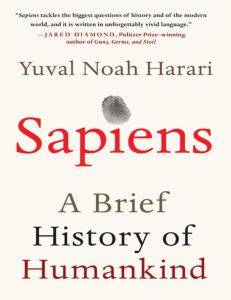PPT: Origins of Man - HRSBSTAFF Home Page
advertisement
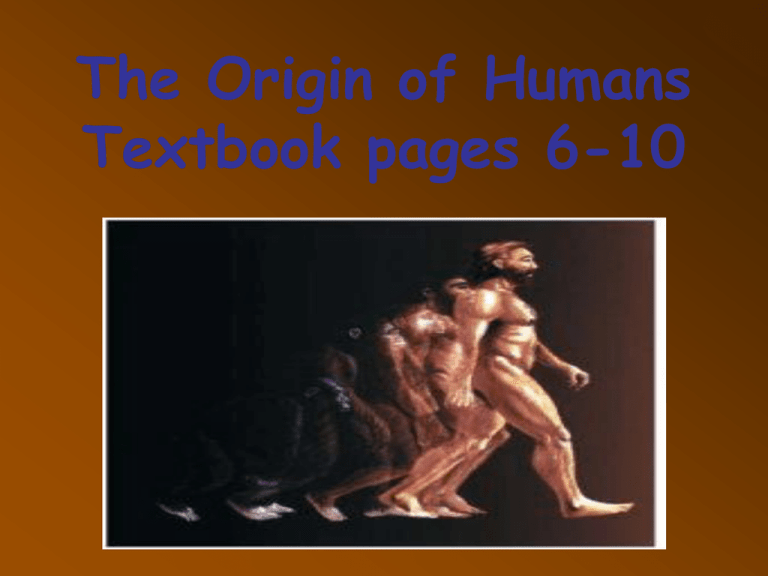
The Origin of Humans Textbook pages 6-10 Evolution – Archaeologist = A person who studies human history and prehistory through the excavation of sites and the analysis of physical remains. – Anthropologist = A person who studies human beings, especially their societies and customs – Hominids = A species that includes the human family – Radiocarbon dating = The determination of the approximate age of an ancient object, such as a fossil, by measuring the amount of carbon 14 it contains. – Paleoanthropology = The study of the origins of humankind The Olduvai Gorge = Part of the Great Rift Valley in East Africa. Discoveries of fossilized remains were located here. • Donald Johanson =An American paleoanthropologist that discovered Lucy and the 1st family • 1st family = Remains of 13 people. The evidence suggested that they were a group who died together 3.2 million years ago. First evidence that people lived in groups Example of Australopithecine = Lucy • Discovered in Ethiopia in 1974 by Donald Johanson • The skeleton was 40% complete • About 3.5 million years old • 25-30 year old female • Named after the Beatles song “Lucy in the Sky with Diamonds” Cradle of Humanity = Evidence proves that human life began in Africa. Homo Habilis = Handy Man Homo Erectus = Upright Man Homo Sapiens = Wise Man Homo Sapiens Sapiens = Wise, Wise Man • Mary & Louis Leakey = Had groundbreaking discoveries of human evolution at Olduvai Gorge, such as the hominid footprints • Bipedalism = The process of walking upright on 2 legs, a major milestone in human evolution. Discussion Time • • • • • • – What is race? – Who defines race? – What are your ideas about race? – Where do they come from? Read page 11 in text Play: http://www.ted.com/talks/lang/eng/nina_jablonski _breaks_the_illusion_of_skin_color.html Out of Africa Theory = Modern humankind evolved from a single population of Homo Sapiens • Youtube Clip: (start at 2:10 mins) http://www.youtube.com/watch?v=-K8QrxeKV- 8&feature=PlayList&p=C9B5A30B4754A0CE&index=23&playnext=3&playnext_from=PL – Diaspora = A group of people who are dispersed around the world – Lineage = Line of descent; family or descendents Mitochondrial Eve = A woman who is the 10,000th great-grandmother of every person on earth. Review & Reflect #1 (Page 10) What have scientists learned from uncovering ancient fossils? Why is this important? • • • • • From ancient fossils, scientists have learned: • the origins of humans and other species • the story of human evolution • how humankind lived • about the tools that humans used and how they used them • • how long humans have inhabited the earth • • about the timeline of human evolution • It is important to study ancient fossils because they reveal things about the human species and relate them to the modern world. These fossils help scientists understand the links between all humans today. PBS Site • RACE—The Power of an Illusion. • Go to http://www.pbs.org/race/000_General/000_00-Home.htm click on learn more and then click on sorting. Do this as a class.
